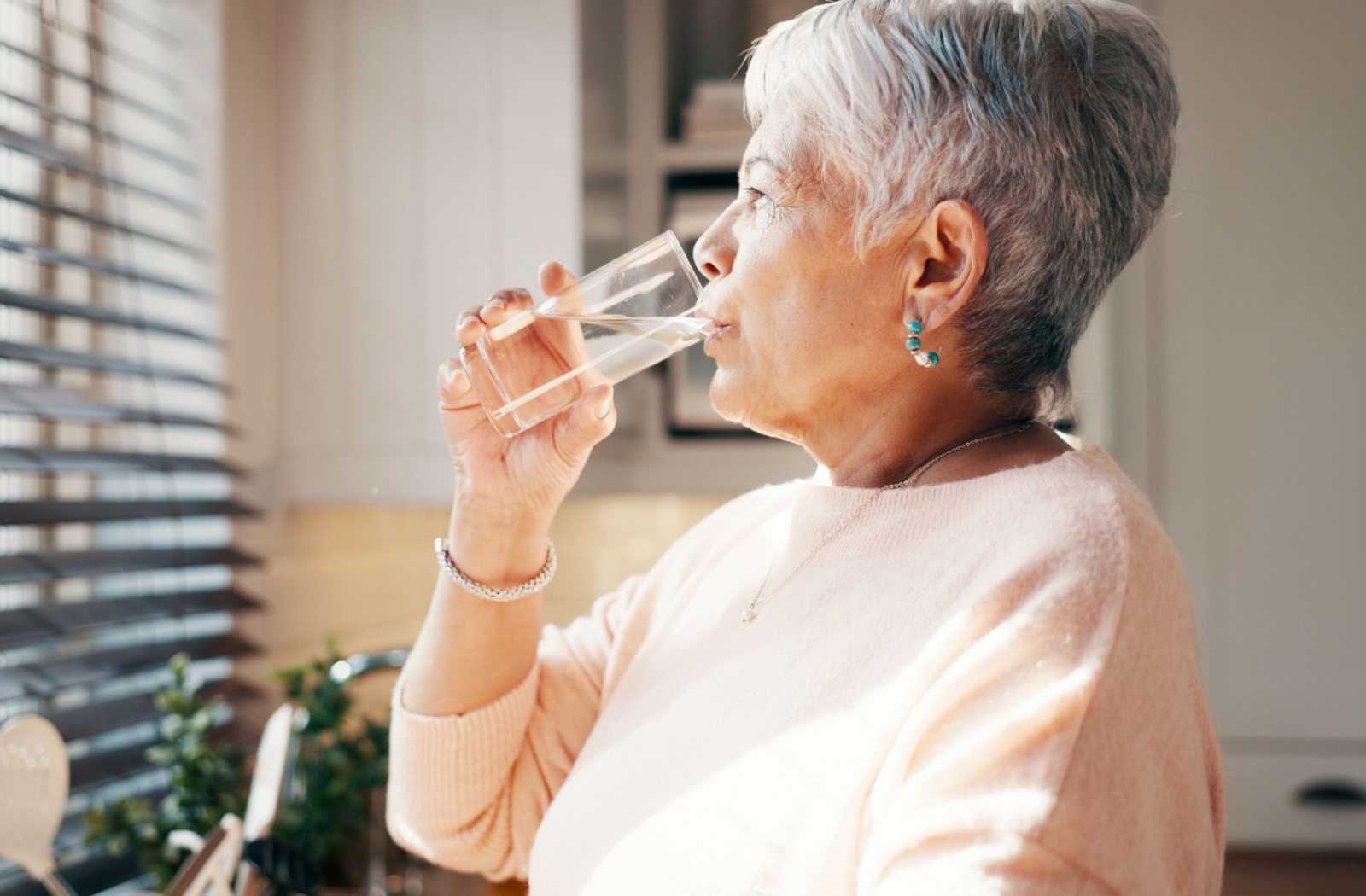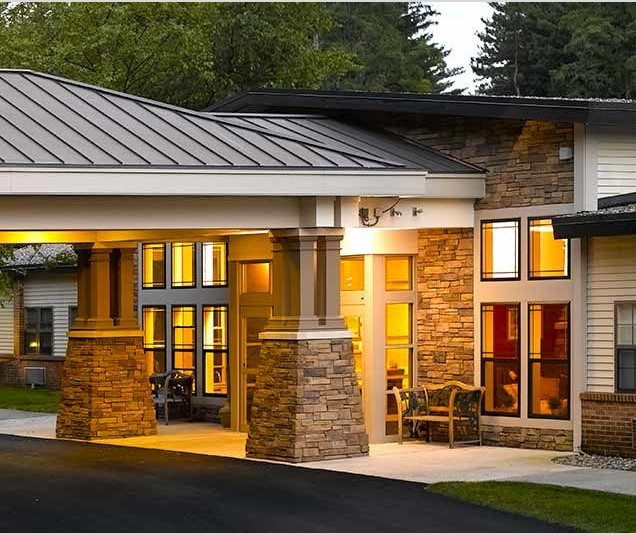Staying hydrated is essential to good health, especially during the hot summer months. For older adults, dehydration can be more than just uncomfortable—it can lead to serious health complications. Age-related changes in the body, certain medications, and reduced sensitivity to thirst all make seniors more susceptible to dehydration.
In settings like assisted living communities, where support and wellness are built into daily routines, residents benefit from structured care that includes hydration monitoring and seasonal health awareness. With summer temperatures rising and heat waves becoming more frequent, it’s important to understand why hydration matters and how seniors can stay cool, comfortable, and well-nourished all season long.
Why Hydration Is So Important for Older Adults
Water plays a vital role in nearly every bodily function. It supports digestion, circulation, joint health, and temperature regulation. However, as we age, our bodies become less efficient at conserving water, and our natural sense of thirst may diminish. This combination increases the risk of dehydration, even when seniors don’t feel thirsty.
Recognize the Health Risks of Dehydration
Dehydration can cause a range of mild to severe health issues. In the short term, it may lead to headaches, dry mouth, fatigue, and confusion. More serious consequences can include urinary tract infections, kidney problems, and falls due to dizziness. Prolonged dehydration can also impact cognitive function and worsen existing chronic conditions.
Understand Age-Related Changes
Older adults often have lower total body water content than younger individuals, which means even small losses of fluid can have a bigger impact. Additionally, certain medications such as diuretics, laxatives, and antihistamines can increase fluid loss. Health conditions like diabetes or kidney disease can further raise the risk of dehydration.
Signs & Symptoms of Dehydration
Knowing the early signs of dehydration can help prevent more serious complications. Seniors and caregivers should stay alert to both physical and behavioural changes that could signal a need for more fluids.
Warning Signs
Common symptoms of dehydration include dry skin, dark-coloured urine, constipation, and increased confusion or irritability. Some seniors may also experience lightheadedness or a faster heart rate. In more severe cases, dehydration can lead to low blood pressure, muscle cramps, or fainting.
Don’t Rely on Thirst Alone
By the time someone feels thirsty, they may already be mildly dehydrated. That’s why it’s important to develop proactive hydration habits and make drinking water a routine part of your day, even without thirst cues.
Easy & Enjoyable Ways to Stay Hydrated
Drinking more water doesn’t have to be a chore. With a few simple strategies, seniors can meet their fluid needs while enjoying a wide variety of refreshing options.
Keep Water Accessible Throughout the Day
Having a water bottle or a glass of water nearby is a helpful reminder to sip frequently. Refillable bottles marked with hourly goals can motivate consistent intake, while lightweight pitchers placed in common areas make it easier to refill a glass.
Add Flavor for Variety
Some seniors find plain water unappealing. Natural flavor enhancers like lemon, cucumber, mint, or berries can make hydration more enjoyable. Herbal teas, low-sugar electrolyte drinks, and infused waters are also good alternatives to plain water.

Eat Foods With High Water Content
Hydration isn’t only about what you drink. Many fruits and vegetables contain high levels of water and can contribute significantly to daily fluid intake.
Choose Hydrating Foods
Options like watermelon, strawberries, cucumbers, oranges, lettuce, and celery are all rich in water. Including these foods in meals and snacks can help seniors stay hydrated while also providing essential vitamins and minerals.
Serve Light, Refreshing Meals
During summer, appetites may decrease due to heat. Cool dishes like fruit salads, yogurt with fresh berries, or chilled soups can encourage both hydration and nutrient intake without feeling too heavy.
Adapt Hydration Strategies to Fit Individual Needs
Hydration needs can vary from person to person depending on health status, medications, and activity levels. What works for one senior may need to be adjusted for another.
Monitor Fluid Intake for Specific Health Conditions
Seniors with heart or kidney conditions may have specific fluid recommendations from their healthcare provider. In these cases, hydration should be managed carefully to avoid complications like fluid retention. Communication between caregivers and medical professionals is key.
Encourage Hydration Through Routine
Building hydration into daily routines makes it easier to maintain over time. Drinking a glass of water with every meal, after medications, or at scheduled times throughout the day creates consistency and reduces the chances of forgetting.
Staying Safe During Outdoor Activities
Spending time outdoors is one of the joys of summer, but it comes with increased risk of heat exhaustion and dehydration. Seniors can still enjoy the sunshine safely by taking a few precautions.
Dress for the Weather
Lightweight, breathable clothing and wide-brimmed hats help regulate body temperature and reduce sweat loss. Choosing light colors can also reflect sunlight and help keep the body cool.
Plan Outdoor Time Wisely
It’s best to avoid outdoor activity during the hottest parts of the day, typically between 10 a.m. and 4 p.m. When going out, seek shade often and always bring a water bottle to sip on regularly.
Tips for Caregivers and Family Members
Family members and caregivers play a critical role in supporting hydration, especially for seniors who may not realize they’re becoming dehydrated.
Offer Gentle Reminders
Encourage seniors to drink fluids throughout the day, especially in the morning and evening when routines are more stable. Setting visual reminders or alarms can help prompt regular sips.
Monitor for Changes
Be alert to changes in mood, energy, or behavior, as these can be early signs of dehydration. If symptoms appear, encourage fluids and rest in a cool, shaded area. Seek medical advice if the signs worsen or don’t resolve quickly.
Supporting Senior Wellness in Guilderland
Hydration is a simple yet powerful way to support health and comfort in the summer months. With thoughtful planning, engaging routines, and supportive caregivers, seniors can stay energized, clear-headed, and safe—even in the hottest weather.
At Peregrine Senior Living at Guilderland, hydration and wellness are part of our everyday care. Through personalized support, nutritious meals, and engaging summer activities, we help residents stay healthy, happy, and hydrated in every season.
Schedule a tour today to experience the Peregrine difference for yourself.













Homemade snickerdoodle cookies in honor of National Cookie Day! As well as a fun holiday themed word scramble game! It definitely feels (& smells like) December around here! 🎄❄️☃️❤️ ... See MoreSee Less
0 CommentsComment on Facebook
So much fun having Farnsworth Middle school here this morning for our 3rd year in a row doing a December get together! The students helped the residents make a beauriful winter craft and played music for them. Their amazing teacher Lisa comes up with & coordinates the best crafts for the kids to do with the residents. We always have the best time with them! Looking forward to coming there again in February! ☃️❄️😊 ... See MoreSee Less
5 CommentsComment on Facebook
Community Relations Directors were incredibly grateful for the chance to visit with Curtis and his team at the The Food Pantries for the Capital District - they took the time to answer our questions, show us their space and teach us about their large-scale operation fighting hunger in the Capital District.
About The Food Pantries: "The Food Pantries is a coalition of 71 food pantries in Albany, Rensselaer, Saratoga, and Schenectady Counties working together to feed the hungry. Our mission is to address hunger in the capital district through our member food pantries."
Support: The Food Pantries are always taking donations that then get distributed to local pantries, especially items like cleaning supplies, diapers, formula & personal care items.
Learn more: Visit their website: thefoodpantries.org/
Peregrine Senior Living at Crossgate
Peregrine Senior Living at Shaker
Peregrine Senior Living at Clifton Park
Peregrine Senior Living At Delmar Place ... See MoreSee Less
0 CommentsComment on Facebook
Snowman craft and Christmas tree decorating on this beautiful snowy day! ☃️❄️🎄 ... See MoreSee Less
2 CommentsComment on Facebook
Happy December! Attached is our December calendar for our memory care residents! 🎄☃️❄️😊 ... See MoreSee Less
view.illustratus.com
illst.us
0 CommentsComment on Facebook
Attached is the December calendar for our assisted living residents. Lots of fun things in store this month to get the holiday spirit! 🎄☃️❄️😊 ... See MoreSee Less
view.illustratus.com
illst.us
0 CommentsComment on Facebook
Last day of November calls for holiday decorating all around the building and the residents enjoyed helping put the ornaments on the Christmas tree! It came out beautiful! Can’t believe tomorrow is already December! 🎄☃️🎅🏼 ... See MoreSee Less
5 CommentsComment on Facebook